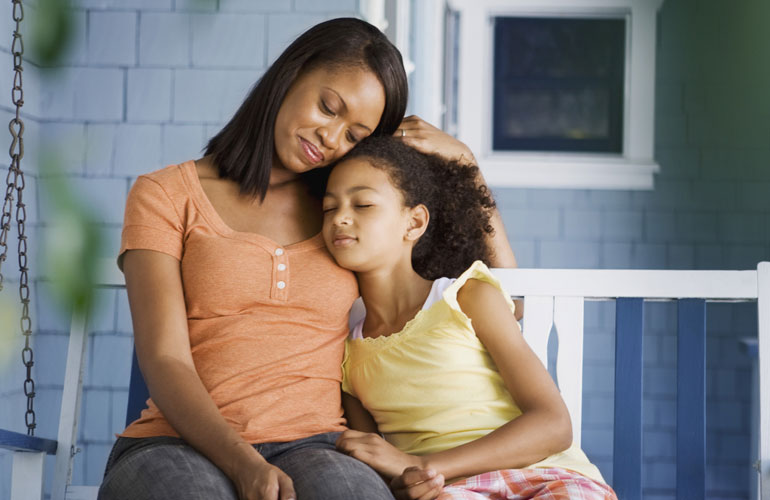Some children talk easily about being adopted, but Sally wasn’t one of them. Whenever her mother, Jessie, introduced the subject, Sally — who’d been adopted at birth — pulled away.
“When she was younger, we used to speak more openly,” said Jessie, “but once Sally started school, she didn’t want to talk about her birth mother or any of her feelings about adoption.”
Suspecting this was a “stage” in her daughter’s development, Jessie respected the silence. Sally was a happy and well-adjusted child, and her mother saw no reason to press the issue.
Soon after Sally’s eleventh birthday, Jessie’s mother died. The two women had been close. Grandma, a widow, had been very supportive of the family’s decision to adopt — and proud of her little granddaughter.
“My mother had a long and happy life, and her funeral was a real celebration,” Jessie explained. “But, of course, there were tears. We all loved her so.”
As the only daughter in her family, Jessie took on the responsibility of cleaning out her mother’s small apartment. It seemed only natural to bring Sally along. There, amid the clutter of too many possessions squeezed into a too-small space, Jessie found the family photo albums. Stuck in among the yellowed pages were carefully folded letters, correspondence spanning three generations.
“Seeing photographs of my mother as a young woman, I suspect Sally realized — for the first time — the arc of a life, that the old lady she knew had once been young and very different,” Jessie said. What surprised them both was one girlish picture of Grandma in which she looked remarkably like the photo Sally had of her birth mother.
“That photo was a way into Sally’s feelings,” Jessie said. “Suddenly, she was able to talk about how much she missed her mother, how, especially when she did something wonderful — like being in the school play or winning a gymnastics trophy — she wished her mother was in the audience.”
The two of them cried at this thought, and Jessie realized that this primal loss was something they now shared. “Those who have lost a parent know the intense feelings that can arise on special occasions,” writes Mary Watkins in Talking with Young Children About Adoption, “when we wish our parent was there to share the joy or express the sorrow…At some psychic level, we are all orphans.”
Sally was old enough to understand this, however intuitively. Not only was this sense of loss a feeling they could share, the young girl realized, it was a condition of life. Hers was not the only heart with a hole in it.
“We took that picture of Grandma home, framed it, and put it in Sally’s room,” said Jessie. It remains a comfort — and a reminder — to them both.



